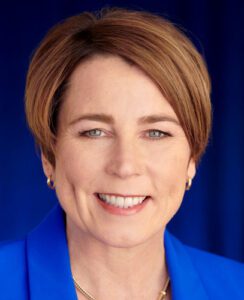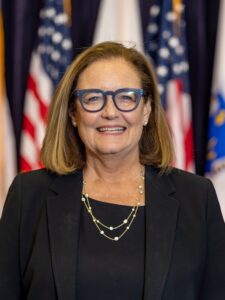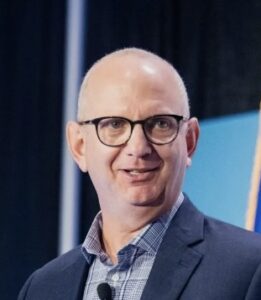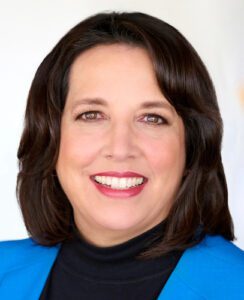For reference, the information here is from the 2025 event. Details for 2026 will be posted here as soon as they’re available.
For reference, the information here is from the 2025 event. Details for 2026 will be posted here as soon as they’re available.
Attendees may pick up their name badge and materials at the main registration desk.
The Trade Show offers opportunities to connect with companies, associations and government agencies in a lively exhibit hall. Local officials can connect with friends and make new contacts while learning about the latest products and services available to help solve municipal challenges. Visitors can easily engage in conversations with exhibitors or just browse.
This interactive session will allow seasoned leaders and emerging professionals to learn from experienced managers. Coaches will provide career guidance and professional counsel based on their own experiences. This is an excellent opportunity for anyone interested in advancing their career and expanding their professional network. MPA students are welcome to attend.
Are you in need of an updated headshot? Municipal members can get a professional photograph taken for free at our Headshot Station.

Kate Fitzpatrick (left) and Opal Mauldin-Jones
In this important conversation, Needham Town Manager Kate Fitzpatrick will talk with Opal Mauldin-Jones, the first female city manager of Lancaster, Texas, who will reflect on overcoming challenges, balancing career and family, and the importance of mentoring. Mauldin-Jones has been Lancaster’s city manager since 2011, and in 2018, she received the inaugural League of Women in Government Leadership Trailblazer Award. All local leaders can benefit from the insights shared during this session.
A great opportunity for seeing colleagues and networking.
Connect 351 attendees are invited to a ribbon cutting, with special guests, for a new, innovative EV Alley that will debut during the MMA’s annual Trade Show. EV Alley will give attendees the opportunity to meet with exhibitors representing the full spectrum of electric vehicle options for the communities — manufacturers, charging infrastructure suppliers, installers, consultants, energy experts and more.
EV Alley will feature municipally oriented electric vehicles on the Trade Show floor, including an electric school bus, a police cruiser and a public works truck.
EV Alley will be located in the 100 aisle of the Trade Show.
This evening networking event will be held at The Sporting Club at the Omni Hotel, 450 Summer St., Boston. RSVPs encouraged by emailing Christine Hoyt at choyt@town.adams.ma.us.
Attendees may pick up their name badge and materials at the main registration desk.
The Trade Show offers opportunities to connect with companies, associations and government agencies in a lively exhibit hall. Local officials can connect with friends and make new contacts while learning about the latest products and services available to help solve municipal challenges. Visitors can easily engage in conversations with exhibitors or just browse.
Are you in need of an updated headshot? Municipal members can get a professional photograph taken for free at our Headshot Station.

Suneel Gupta
“Momentum: Boosting Resilience, Fulfillment and Performance”
• See video below!
Bestselling author and entrepreneur Suneel Gupta has made a career out of studying the successes and failures of leaders and exploring the link between well-being and performance. In Friday’s opening keynote, titled “Momentum: Boosting Resilience, Fulfillment and Performance,” Gupta will address what he calls the “human energy crisis” and the link between well-being and performance.
Gupta is a visiting scholar at Harvard Medical School and the host of the docuseries “Business Class,” which highlights the success stories and challenges of entrepreneurs, including Martha Stewart and Top Chef’s Tom Colicchio. He has written two books, “Backable: The Surprising Truth Behind What Makes People Take a Chance on You,” and “Everyday Dharma: 8 Essential Practices for Finding Success and Joy in What You Do.”
Combining ancient wisdom and scientific research, Gupta works to help leaders overcome the “energy crisis” at work and develop better energy management strategies in order to boost creativity, innovation, and productivity, while simultaneously improving their emotional resilience and well-being.
Gupta’s research also draws from his own experiences as a Silicon Valley entrepreneur. Following the collapse of his first two Silicon Valley startups more than a decade ago, Gupta became the “face of failure” when a New York Times article captured his comments at a conference on failure. But he soon achieved success as the founding CEO of RISE (now owned by Amazon), a mobile health company that partnered with then-First Lady Michelle Obama to provide low-cost health coaching to people in need. He has also invested in numerous well-known companies, including Airbnb, 23andMe and the meditation app Calm.
He has a degree in information systems from the University of Michigan-Dearborn, and law and business degrees from Northwestern University.
 Gov. Maura Healey, the 73rd governor of Massachusetts, will be addressing the MMA’s annual conference for the third time as the Commonwealth’s chief executive.
Gov. Maura Healey, the 73rd governor of Massachusetts, will be addressing the MMA’s annual conference for the third time as the Commonwealth’s chief executive.
Healey’s appearance at Connect 351 will come shortly after her annual State of the Commonwealth address and two days after she files her fiscal 2026 state budget plan with the Legislature.
Since taking office in 2023, Healey and Lt. Gov. Kim Driscoll have been taking on many of the state’s biggest challenges, including the statewide housing shortage, climate change, an emergency shelter crisis, infrastructure needs, and economic development, while emphasizing the state-local partnership.
Healey has served for two decades in state government. In 2014, she was elected to the first of two four-year terms as attorney general, during which time she gained national attention for her work on issues including the opioid epidemic, climate issues, health care costs, and student loan debt.
Healey began her legal career as a U.S. District Court clerk, followed by more than seven years in private practice. She also served as a special assistant district attorney in Middlesex County. In 2007, she was hired by then-Attorney General Martha Coakley as chief of the Civil Rights Division, where she spearheaded the state’s challenge to the federal Defense of Marriage Act. She also served as chief of the Public Protection and Advocacy Bureau and chief of the Business and Labor Bureau.
Raised in Hampton Falls, New Hampshire, Healey came to Massachusetts to attend Harvard College, where she majored in government, was co-captain of the women’s basketball team, and graduated with honors in 1992. She spent two years playing professional basketball in Europe before returning to earn her law degree at Northeastern University School of Law.
In 2022, Healey became the state’s first woman and first openly gay person to be elected governor.
These six 30-minute sessions provide opportunities to hear from experts on a variety of topics. Click here to see the full list of Learning Labs.
Join the Healey-Driscoll Administration to learn about opportunities to engage with the state in Massachusetts’ 250th anniversary celebration activities.
Join your Massachusetts Municipal Communicators peers for sharing best practices and networking.
Are you in need of an updated headshot? Municipal members can get a professional photograph taken for free at our Headshot Station.

Secretary Kate Walsh
A former hospital executive who has made equity in health care a centerpiece of her work, Kate Walsh has been serving as the state’s health and human services secretary since March 2023.
Walsh’s office oversees 11 agencies, two soldiers’ homes, the MassHealth system, and 23,000 employees whose work touches roughly one in three Massachusetts residents each day. The office has oversight for a wide range of state services, including child welfare, health benefits, veterans’ services, behavioral health, opioids response, and elder care.
Walsh previously served as CEO of the Boston Medical Center Health System for 13 years. She has also held senior leadership positions at Brigham and Women’s Hospital, Massachusetts General Hospital, the Novartis Institutes for Biomedical Research, and several New York hospitals.
At Boston Medical Center, Walsh led a safety-net hospital and academic medical center that provides care to underserved populations in the region, while also overseeing the BMC WellSense Health Plan, which administers health insurance for low-income patients. In 2021, the hospital launched the Health Equity Accelerator to examine inequities in health care, studying dozens of health conditions to identify disparate outcomes by race and ethnicity and devising strategies to eliminate those gaps.
Under Walsh’s leadership, Boston Medical Center programs established partnerships focusing on behavioral health, affordable housing, job training, food insecurity, transportation, addiction services, and other issues affecting people’s health. In 2016, the hospital opened the first comprehensive transgender medical program in the Northeast.
A Yale University graduate with a master’s degree in public health, Walsh has served on numerous boards and commissions, including the Boston Public Health Commission, the American Hospital Association, and the Board of the Federal Reserve Bank of Boston.
Graduates and current students of the MMA-Suffolk programs are invited to a networking reception. Light lunch refreshments will be served. The reception is complimentary but an RSVP is required to Kate Evarts at kevarts@mma.org.
An opportunity for STAM colleagues to connect.
Topics:
• Brief Review: Updates on Municipal Law
• Fiscal and Economic Outlook
• Having the Courage to Confront: Managing Behavioral Challenges in the Workplace
• Navigating Politically Contentious Legal Matters
• Smooth Transition Ahead: Organizational Succession Planning
• Sparking Success With Municipal Internship Programs
Topics:
• Accelerating Housing Production While Addressing Roadblocks, NIMBY, and More
• Deepening DEI Knowledge by Exploring Self-Awareness
• The Latest in Labor Law
• Navigating Cyberthreats: Empowering Municipal Executives
• Prioritizing Resilience: From Planning to Capital Investments
• What’s Driving the Cost of Public Education?
A great opportunity for seeing colleagues and networking.
Members can network over dinner.
Attendees may pick up their name badge and materials at the main registration desk.
MIIA members are invited to join their fellow municipal officials from MIIA communities and MIIA staff for the MIIA Annual Business Meeting.
Members can network over breakfast.

Matt Lehrman
“From Conflict to Conversation”
• See video below!
Matt Lehrman is a managing partner at Social Prosperity Partners, a firm he co-founded in 2012 to work with municipal, civic and nonprofit organizations to improve public engagement, build consensus and undertake strategic planning.
Lehrman has extensive experience working with local governments around the county, and regularly speaks to state municipal leagues around the country. In his popular “From Conflict to Conversation” presentations, he tells local leaders how they can build consensus around important decisions and foster inclusion through meaningful dialogue.
Since February, Lehrman has also hosted the “Community Catalysts” podcast, where he interviews elected and appointed municipal officials, civic and nonprofit leaders, and businesspeople who have worked to improve their communities.
Lehrman, who has a bachelor’s degree in government and sociology from Oberlin College, spent much of his early career in banking and the arts before focusing on government. For 17 years, he was an arts and culture administrator, serving as vice president of marketing and communications for Scottsdale Arts in Arizona before founding the Alliance for Audience, an organization that promoted arts and culture in Arizona for almost a decade.
He has also been a faculty associate and guest lecturer at Arizona State University and a speaker for Vistage Worldwide, a business advisory and executive coaching organization.
At the MMA’s Annual Business Meeting each January, local leaders from across Massachusetts engage in important policy discussions that help guide the work of the MMA in the coming year.
Among other agenda items, MMA members will consider one or more policy resolutions on key municipal issues. Each resolution is drafted by an MMA policy committee during the fall and approved by the MMA Board of Directors in November.
 Kim Driscoll, the 73rd lieutenant governor of Massachusetts and a former mayor of Salem, will address local leaders during the MMA’s Annual Business Meeting, when MMA members will also hear recorded remarks from U.S. Sens. Elizabeth Warren and Ed Markey and will discuss four policy resolutions.
Kim Driscoll, the 73rd lieutenant governor of Massachusetts and a former mayor of Salem, will address local leaders during the MMA’s Annual Business Meeting, when MMA members will also hear recorded remarks from U.S. Sens. Elizabeth Warren and Ed Markey and will discuss four policy resolutions.
Driscoll and Gov. Maura Healey made history when they took office in 2023 as the first all-women executive team to run the state. They have been taking on many of the state’s biggest challenges, including the statewide housing shortage, climate change, an emergency shelter crisis, infrastructure needs and economic development, while emphasizing the state-local partnership.
Given her extensive municipal experience, Driscoll has a prominent role in maintaining the administration’s relationships with local leaders across the state, including ongoing advocacy for legislation to improve local government operations. She also presides over the state’s Local Government Advisory Commission, which brings together administration officials and municipal leaders to discuss pressing issues throughout the year.
Driscoll also made history with her election in 2005 as the first woman to lead Salem — the city’s 50th mayor. Driscoll was previously chief legal counsel and then deputy city manager in Chelsea, community development director in Beverly, a councillor in Salem, and an intern in Salem’s Planning Department.
Driscoll majored in political science and played basketball at Salem State University before earning a law degree at the Massachusetts School of Law.
In Salem, Driscoll was credited with helping to improve the city’s finances, overseeing infrastructure upgrades, investing in public school improvements, championing climate initiatives, prioritizing downtown and waterfront revitalization, and promoting equality, among other accomplishments.
As a local official, she had been actively involved in the MMA and served as president of the Massachusetts Mayors’ Association in 2012. She also served as chair of the North Shore Coalition of the Metropolitan Area Planning Council, and served on the Massachusetts Workforce Development Board, the U.S. Environmental Protection Agency’s Local Government Advisory Committee, the Massachusetts Seaport Economic Council, and the Massachusetts Economic Development Planning Council.
All mayors are invited to the Annual Business Meeting of the Massachusetts Mayors’ Association, provided they are registered for Connect 351. Boxed lunches will be provided for attendees of the Business Meetings.
All town managers and town administrators are invited to the Annual Business Meeting of the Massachusetts Municipal Management Association, provided they are registered for Connect 351. Boxed lunches will be provided for attendees of the Business Meetings.
All members of select boards in Massachusetts are invited to attend the MSA Annual Business Meeting, provided they are registered for Connect 351. Attendance at the MSA Annual Business Meeting is limited to MSA members. Boxed lunches will be provided for attendees of the Business Meetings.
All members of city and town councils in Massachusetts are invited to attend the MMCA Annual Business Meeting, provided they are registered for Connect 351. Attendance at the MMCA Annual Business Meeting is limited to MMCA members. Boxed lunches will be provided for attendees of the Business Meetings.
A chance for Chiefs of Staff to network over lunch.
Topics:
• Bringing Balance, Productivity and a Connection to Purpose at the Workplace
• Building Trust in Local Government Through Communications
• Focus on Federal Funds
• An Insider’s Look at the Joint Labor-Management Committee
• Making AI Your Partner in Local Government
• Raising Revenue: Passing Debt Exclusions and Overrides
How are you moving your community from Conflict to Conversation? What challenges are you facing, and what do you hope to achieve? Keynote speaker Matt Lehrman will facilitate a follow-up discussion that invites attendees to share challenges and seek practical advice from each other. Come prepared to “wear your heart on your sleeve” about how to engage more people and reach agreement around whatever you hope to accomplish in your community.
Members can network over coffee and dessert.